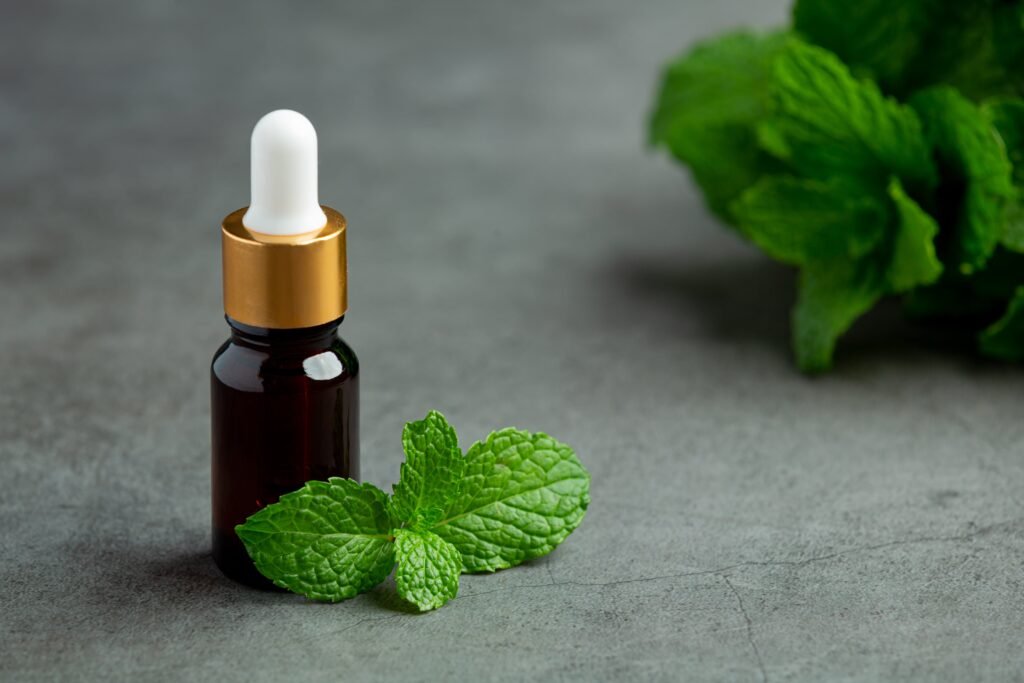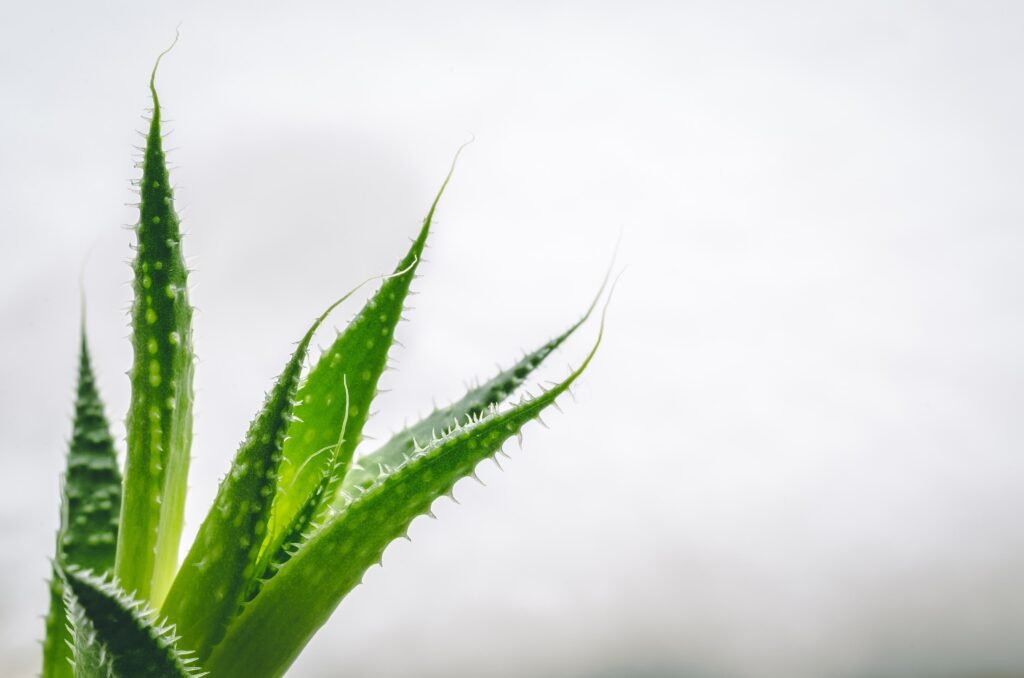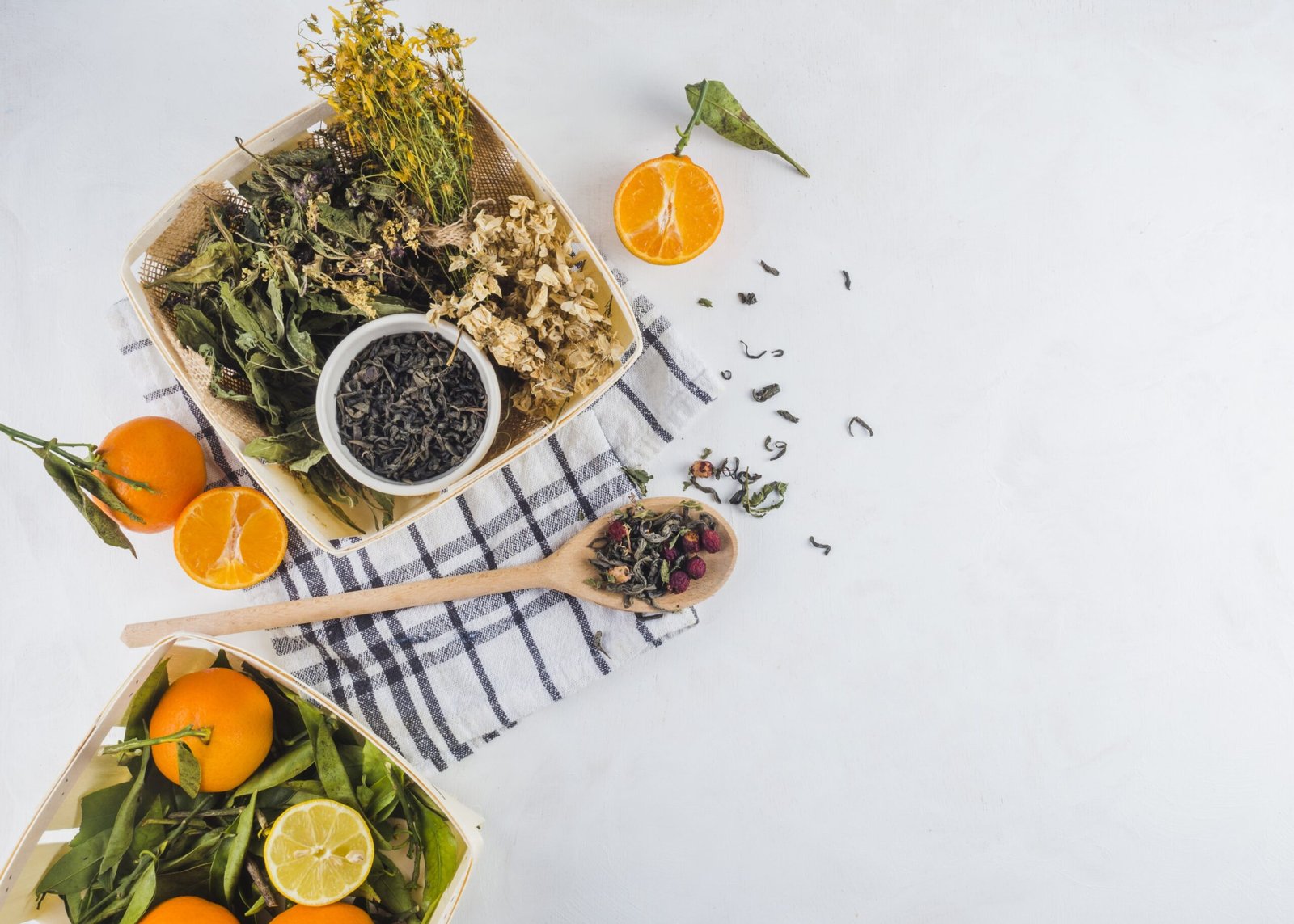Irritable Bowel Syndrome (IBS) is one of the most common digestive disorders worldwide, affecting millions of people who struggle with unpredictable bowel habits, abdominal discomfort, bloating, and stress that worsens symptoms. Many patients often ask their gastroenterologists: Can natural remedies help? The good news is that certain medicinal herbs, supported by both science and centuries of traditional use, may provide significant relief from IBS symptoms when used thoughtfully.
In this comprehensive article, I will combine insights from clinical gastroenterology with research-backed data and personal experience in patient care to explore the role of herbs in IBS management. The aim is to provide both scientific clarity and a human touch—because IBS is more than a medical condition, it’s a day-to-day challenge.
Table of Contents
Understanding IBS from a Gastroenterologist’s Perspective

Before diving into herbal remedies, it’s important to grasp what IBS truly is. IBS is classified as a functional gastrointestinal disorder, meaning it involves altered gut-brain communication and motility rather than visible structural damage. Symptoms vary, but most individuals fall into one of these categories:
- IBS-C: constipation-predominant
- IBS-D: diarrhea-predominant
- IBS-M: mixed constipation and diarrhea
- IBS-U: unsubtyped, with variable symptoms
Triggers include diet, stress, hormonal changes, and gut microbiome imbalances. While conventional therapies like antispasmodics, fiber supplements, and prescription medications remain helpful, many patients find relief by complementing medical care with herbal support.
Why Consider Herbs for IBS Relief?
Living with IBS often means dealing with unpredictable flare-ups that disrupt daily life. While conventional treatments like dietary adjustments, antispasmodics, and fiber supplements play an important role, many people still experience lingering symptoms or prefer gentler, natural alternatives. This is where herbs come in as a valuable addition to IBS management.
1. A Gentle, Holistic Approach
Herbs are often better tolerated than some pharmaceutical options, especially for individuals sensitive to side effects. Instead of aggressively altering gut function, many herbs work with the body to restore balance. Their multifaceted actions address not only the digestive tract but also the nervous system, inflammation, and gut microbiome—all of which play roles in IBS.
2. Evidence-Based Benefits
Modern research has validated what traditional medicine has practiced for centuries. Randomized controlled trials, systematic reviews, and meta-analyses have shown that herbs such as peppermint oil, turmeric, and fennel provide measurable relief for common IBS symptoms like bloating, abdominal pain, and irregular bowel habits. The scientific community increasingly acknowledges their value as complementary therapies.
3. Targeting the Gut-Brain Connection

IBS is more than a digestive disorder—it’s a gut-brain communication issue. Stress and anxiety often worsen symptoms. Certain herbs, like chamomile and valerian, not only ease digestion but also promote relaxation, reduce stress hormones, and improve sleep, all of which indirectly help manage IBS flare-ups.
4. Anti-Inflammatory and Antispasmodic Effects
Many herbs contain natural compounds that calm spasms in the intestines, soothe irritation, and reduce inflammation in the gut lining. For instance, menthol in peppermint acts as a natural antispasmodic, while curcumin in turmeric has strong anti-inflammatory properties. These actions directly target common IBS discomforts without harsh chemical intervention.
5. Supporting the Microbiome
A growing body of research shows that IBS is linked to imbalances in gut bacteria. Herbs such as ginger, fennel, and artichoke leaf extract may support healthy microbial diversity and promote optimal digestion. This gentle modulation of gut flora can contribute to long-term symptom control.
6. Personal Empowerment and Ritual
One overlooked benefit is the sense of empowerment herbs provide. Preparing a cup of chamomile or ginger tea is not only soothing for the gut but also a calming ritual that reassures patients they are taking active steps toward healing. This psychological comfort is crucial in managing IBS, which is often worsened by stress and anxiety.
Best Herbs for IBS Relief
1. Peppermint Oil

- Scientific backing: Multiple randomized controlled trials show that peppermint oil capsules reduce abdominal pain and bloating by relaxing smooth muscle in the intestines.
- How it works: Menthol, the active compound, acts as a natural antispasmodic.
- Personal note: I often recommend enteric-coated peppermint capsules to patients, as they deliver the oil directly to the intestines, minimizing heartburn.
2. Chamomile
- Scientific support: Chamomile is rich in flavonoids and terpenoids with anti-inflammatory and calming effects.
- How it helps IBS: Reduces cramping, soothes stress-related flares, and may improve sleep.
- Patient experience: One of my patients who suffered IBS-M found daily chamomile tea provided gentle symptom control without side effects.
3. Fennel Seeds
- Evidence: Studies suggest fennel reduces bloating and flatulence due to its carminative properties.
- Mechanism: Fennel essential oils relax the colon and aid digestion.
- Usage tip: Drinking fennel seed tea after meals can ease discomfort.
4. Turmeric (Curcumin)
- Clinical trials: Curcumin has shown promise in reducing abdominal pain and improving quality of life in IBS sufferers.
- Action: Anti-inflammatory and gut microbiome-modulating effects.
- Practical advice: Absorption improves when combined with black pepper (piperine).
5. Ginger
- Research: Known for its anti-nausea and motility-enhancing effects.
- In IBS: Helps regulate gut contractions and reduce gas.
- Human touch: I often share with patients that ginger tea is one of the simplest, safest remedies they can try at home.
6. Aloe Vera

- Evidence: Some studies show benefits for IBS-C patients due to its mild laxative effect.
- Caution: Overuse can cause diarrhea; it’s best taken under medical guidance.
7. Slippery Elm
- Traditional use: Long used in Native American medicine.
- Mechanism: Coats the digestive tract, soothing irritation and improving stool consistency.
8. Artichoke Leaf Extract
- Studies: Shown to improve dyspepsia and IBS symptoms by enhancing bile flow.
- Effect: Eases bloating and supports fat digestion.
9. Licorice Root (DGL form)
- How it helps: Reduces gut inflammation and supports mucosal healing.
- Note: Use deglycyrrhizinated (DGL) form to avoid blood pressure issues.
10. Valerian Root
- Indirect benefit: Not a digestive herb per se, but supports stress and sleep—two major IBS triggers.
Safety Considerations
While herbs are natural, they are still biologically active substances, which means they can have real effects—both beneficial and adverse. To ensure safe and effective use, keep the following in mind:
1. Consult with Your Healthcare Provider
Always discuss herbal use with your doctor, particularly if you are already on prescription medications. Some herbs can interact with blood thinners, blood pressure medications, or antidepressants, potentially leading to unwanted side effects.
2. Start Low, Go Slow
Every digestive system is unique. Begin with a low dose to assess tolerance before gradually increasing. For example, while peppermint oil is well tolerated by many, some may experience reflux if they start with a higher dose.
3. Choose Quality Products
Not all herbal products are created equal. Opt for standardized extracts from reputable brands. Third-party testing for purity and potency ensures you are getting what’s promised on the label without harmful contaminants.
4. Beware of Overuse
“More” does not always mean “better” with herbs. Aloe vera, for instance, may help with constipation-predominant IBS, but excessive intake can cause diarrhea, dehydration, or even electrolyte imbalances.
5. Consider Individual IBS Subtype
Herbs can act differently depending on whether you have IBS-C, IBS-D, or IBS-M. For example, aloe vera may be suitable for IBS-C but could worsen symptoms in IBS-D. Tailoring choices to your IBS type is essential for best results.
6. Look Out for Allergies and Sensitivities
Natural does not mean harmless. Some people may be allergic to plants like chamomile (related to ragweed). Others may be sensitive to compounds in fennel or licorice. Always monitor your body’s response closely.
7. Pregnancy and Breastfeeding Precautions
Certain herbs may not be safe during pregnancy or breastfeeding. For instance, fennel and chamomile, though generally safe for most, should be used cautiously in expectant or nursing mothers. Medical guidance is crucial in these cases.
8. Duration of Use Matters
Some herbs are best suited for short-term use, while others can be safely incorporated long-term. Licorice root, even in its DGL form, should be cycled periodically rather than used continuously without medical oversight.
Lifestyle and Herbal Integration
Herbs are most effective when paired with sustainable lifestyle changes that target the root contributors to IBS. While an herb may soothe the gut, long-term relief often comes from combining natural remedies with supportive daily practices.
1. Nutrition as a Foundation
- Consider a low-FODMAP diet to identify and reduce trigger foods that worsen gas, bloating, or diarrhea.
- Incorporate high-fiber foods slowly if you have IBS-C, as rapid increases can worsen discomfort.
- Pair herbs like fennel or peppermint with balanced meals to enhance digestion and reduce post-meal bloating.
2. Stress Management and Mind-Body Practices
- IBS is closely linked with stress through the gut-brain axis.
- Practices such as yoga, meditation, deep breathing, and tai chi can calm the nervous system, reducing gut sensitivity.
- Herbs like chamomile, valerian, or lemon balm can complement these practices by enhancing relaxation.
3. Movement and Physical Activity
- Regular exercise, such as walking, swimming, or light strength training, supports bowel regularity and relieves stress.
- Pairing ginger or peppermint tea after workouts can further support digestion.
4. Sleep Hygiene
- Poor sleep can worsen IBS flare-ups.
- Establishing a consistent sleep routine and using calming herbal teas (e.g., chamomile or valerian) before bed can improve rest and reduce symptom severity.
5. Creating Healing Rituals
- Making time for herbal teas, journaling about food triggers, or practicing gratitude before meals can transform IBS management into a daily ritual of self-care.
- These mindful practices not only soothe the gut but also empower patients with a sense of control.
6. Individualization is Key
- No two IBS patients are alike. A combination that works for one person (peppermint capsules and yoga) may not work for another (who may find fennel tea and meditation more effective).
- Trial, observation, and guided experimentation with a healthcare provider help craft the most effective personal routine.
Conclusion
Living with IBS can feel overwhelming, but it doesn’t have to define your life. Scientific evidence and centuries of tradition show that herbs, when used wisely, offer real comfort and relief. From peppermint’s ability to calm intestinal spasms to chamomile’s soothing effects on both gut and mind, nature provides a powerful toolkit. Combined with balanced nutrition, stress management, movement, and restorative sleep, herbal remedies can empower individuals to reclaim control over digestive health.
The key is a personalized, integrative approach guided by a healthcare professional. While IBS has no single cure, blending modern gastroenterology with natural therapies allows patients to reduce symptoms, restore balance, and live with greater ease and confidence.
Frequently Asked Questions (FAQs)
Q: What are the most effective herbal treatments for IBS?
A: The most researched herbs for IBS include:
- Peppermint oil: Widely studied for its antispasmodic effects, peppermint oil is considered one of the most effective herbal treatments for IBS.
- Chamomile: Known for its calming properties, chamomile may help alleviate symptoms like bloating and abdominal discomfort.
- Ginger: Traditionally used to relieve nausea and improve digestion, ginger may offer benefits for IBS patients.
- Aloe vera: Some studies suggest that aloe vera may help reduce IBS symptoms, though more research is needed.
Q: Can herbal remedies cure IBS?
A: Currently, there is no cure for IBS. Herbal remedies can help manage symptoms and improve quality of life, but they should be used in conjunction with other treatments and lifestyle modifications.
Q: How long does it take for herbal treatments to work for IBS?
A: The time it takes for herbal treatments to alleviate IBS symptoms can vary. Some individuals may experience relief within a few days, while others may take several weeks. Consistency and proper dosage are important factors.
Q: Are there any side effects associated with herbal remedies for IBS?
A: While generally considered safe, some herbal remedies may cause side effects such as heartburn, diarrhea, or allergic reactions. It’s important to consult with a healthcare provider before starting any new herbal treatment.
Q: Can I use herbal remedies alongside my current IBS medications?
A: Some herbal remedies may interact with prescription medications. Always consult your healthcare provider before combining herbal treatments with other medications to avoid potential interactions.
Q: Are there any new herbal treatments being researched for IBS?
A: Recent studies have explored combinations of herbs like berberine and curcumin for IBS relief. While early results are promising, more research is needed to confirm their effectiveness.
Q: How can I integrate herbal remedies into my daily routine for IBS?
A: Incorporate herbal teas, supplements, or tinctures into your daily regimen as recommended by a healthcare provider. Pairing herbal treatments with a balanced diet, regular exercise, and stress management techniques can enhance their effectiveness.
